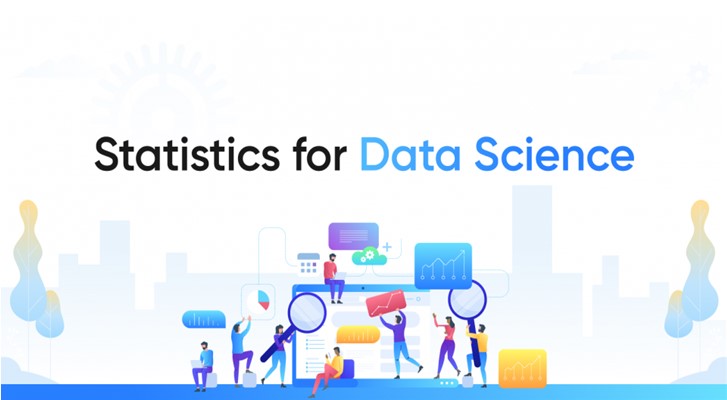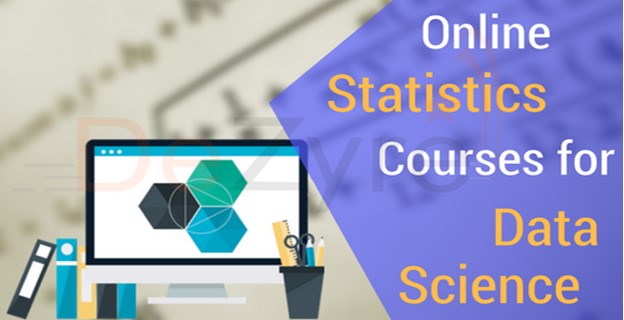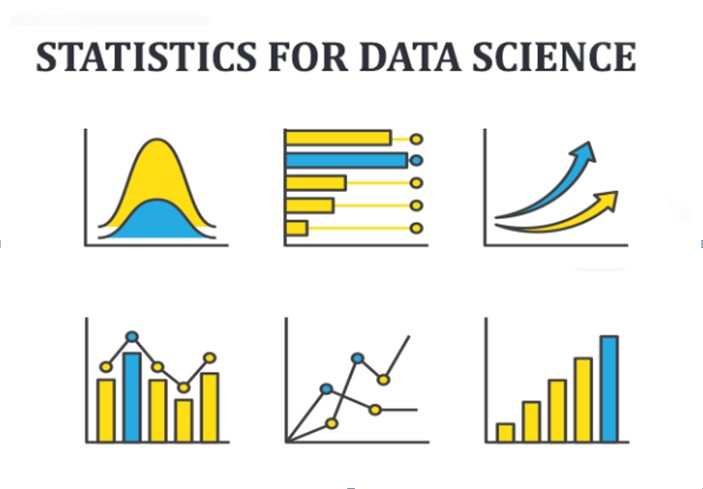During our schooling days, statistics and probability are the topics that are given the least preference in our math classes, instead, we focused on calculus and other boring stuff. But when it comes to data science a fundamental understanding of the topic of statistics is needed, as we have discussed in our previous article one of the four pillars on which data science takes support is Statistics. In this article let’s discuss the importance of statistics for data science, and sources from which you can learn statistics for data science.
Importance Of Statistics For Data Science
As we all know data science is all about finding trends in data and derive meaningful insights from the data. Statistics is used to process complex problems in the real world so that Data Scientists and Analysts can look for meaningful trends and changes in Data.
Following are the role of statistics in data science
- Statistics can be used to derive meaningful insights from data by performing mathematical computations on it.
- Probability and Statistics are involved in different predictive algorithms that are there in Machine Learning
- Statistics is used to perform quantitative and qualitative analyses on data after which trends in data are found out.
- It gives you information about the data, how it is distributed, information about the independent and dependent variable, etc.
- All fundamentals of data science like a central limit theorem, hypothesis analysis, P-value depends on statistics and probability.
Where To Learn Statistics For Data Science
As we have seen that statistics is a building stone of data science it is very important to understand basic and important concepts from it. Let’s see various sources from where you can start to learn about statistics for data science.
Online Courses To learn Statistics For Data Science:
Online courses are easily available in abundance, Now where days it’s pretty hard to distinguish between a good course and a bad course. Here we have discussed how to select the best online course also we have reviewed two renowned data science courses offered by top universities, so do check them.
Online Courses are the easiest and structured way to learn about any topic today, visual interpretations of the concepts will engrave it hardly into our minds, and more hands-on projects and real-life examples will make learning more fun. Also, candidates will get the privilege to have a certificate from top universities without even wanting to visit the campus.
Books To Learn Statistics For Data Science
Learning data science through books will help you get a holistic view of Data Science as data science is not just about computing, it also includes mathematics, probability, statistics, programming, machine learning, and much more. Books are cheaper when compared to courses that are offered by universities, some books are even available for free. So books are a very good source of knowledge, even the instructors of the course that are mentioned above use these standard textbooks as references.
As we have covered this topic in detail in our previous article we are not spending more time here. Do check them here
In Statistics What You Have To Learn: Syllabus Of Statistics For Data Science
In statistics, there are a lot of subtopics that can be learned. But to become a data scientist there is no need for learning everything about statistics. Learn only what you want, This will help you save time and energy.
Following are the concepts that you should focus on
- Understand the fundamentals of statistics(mean, median, mode, standard deviation, spread, ogive, shape, outlier. etc)
- Learn how to work with different types of data
- How to plot different types of data
- Calculate the measures of central tendency, asymmetry, and variability
- Calculate correlation and covariance
- Distinguish and work with different types of distributions
- Estimate confidence intervals
- Perform hypothesis testing
- Make data-driven decisions
- Understand Carry out the mechanics of regression analysis
- Use and understand dummy variables
- Understand the concepts needed for data science even with Python and R!
There is a lot more to be learned but give more importance to these topics since during your data science career these are what you will come across pretty often. So these are the topics you should focus on and skills that you should possess.
5 Interview Questions And Answers About Statistics For Data Science
What are the four main things we should know before studying data analysis?
Descriptive statistics, Inferential statistics, Distributions (normal distribution / sampling distribution), Hypothesis testing
What is the difference between inferential statistics and descriptive statistics?
Descriptive statistics – provides exact and accurate information. Inferential statistics – provides information of a sample and we need to inferential statistics to reach to a conclusion about the population.
What is the difference between population and sample in inferential statistics?
Population is a large set of data from which sample is sorted out. Population cannot be computed either due to the cost or due to lack of data points. From the sample we calculate the statistics, from the sample statistics we conclude about the population.
What is the meaning of standard deviation?
It represents how far are the data points from the mean. Variance is the square of standard deviation
What are left-skewed distribution and right-skewed distribution?
In left-skewed distribution, the left tail is longer than the right side which means the mean will be less than median and median will be less than mode, But in right-skewed distribution, the right tail is longer than the right side which means mode is less than median and median is less than mean.
Conclusion
Here we have seen how statistics is important for data science we have also seen various sources from where you can learn statistics for data science. We have also discussed the primary focus areas when you learn statistics also at the end of the article we have seen 5 most frequently asked questions and answers about this topic. Hope you might have learned something new from this article we wish you all the best for your data science career.













